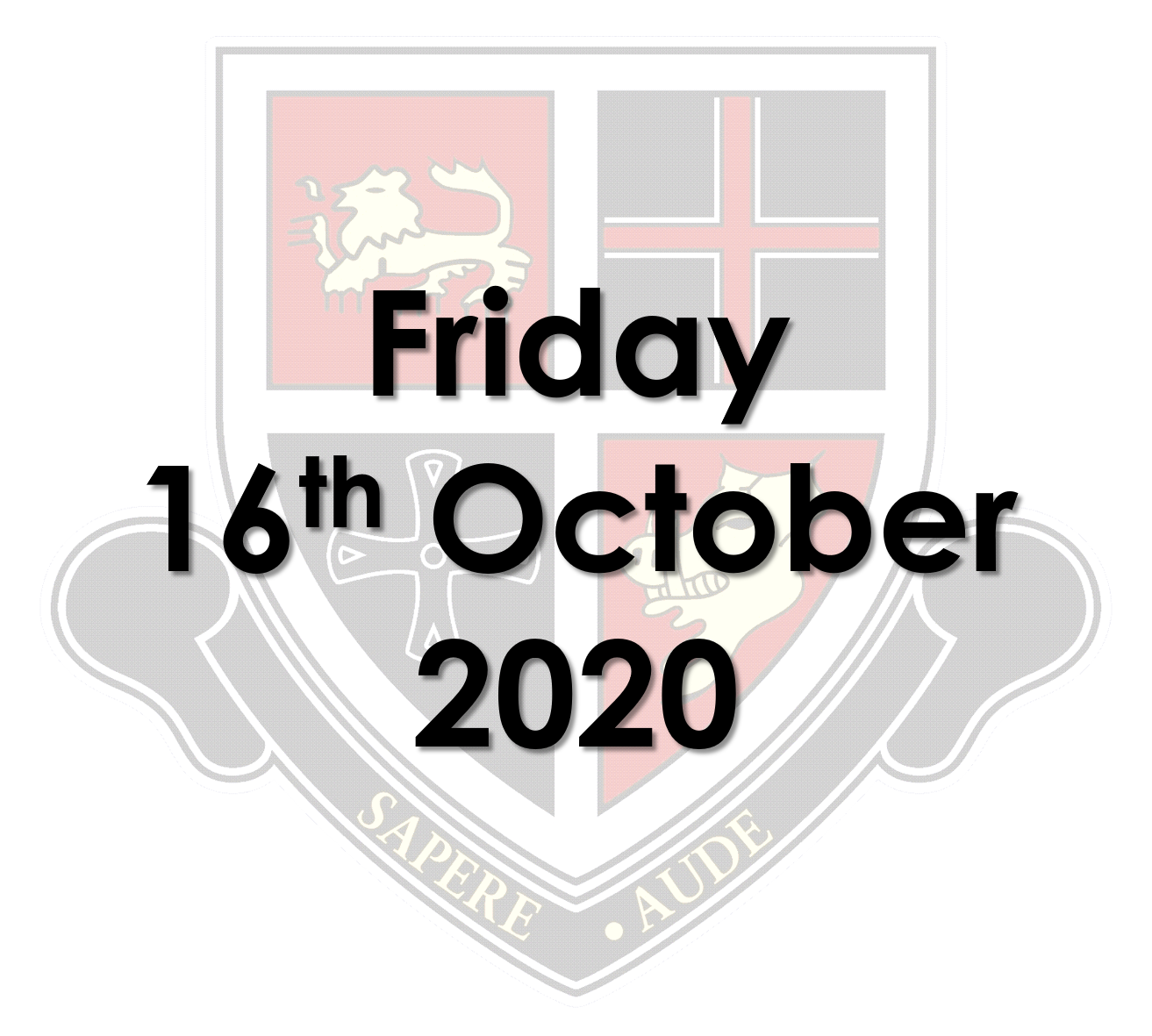16 October 2020

Dear Parents & Carers,
This week’s update is comparatively short, as all parents and carers will receive a detailed letter next week which offers a review of this half-term and outlines our plans for each individual year group in the run up to Christmas. At the start of the school year we had three main aims:
- to ensure that all members of our school community were as safe as possible given the current regional and national context;
- to provide a high level of support for those who had faced significant difficulties when schools were closed in March;
- to offer a full and broad curriculum for all students.
We were very worried that many schools had quickly reduced the number of GCSEs their students could continue studying, or had taken the decision to completely stop the delivery of all practical lessons for KS3 students. All schools face unique challenges, but we are committed to maintaining as broad a curriculum as possible and we are proud that we have managed to do so in challenging circumstances.
Last week I shared a number of proposals for the 2021 GCSE and A Level examinations which had been developed by the main teaching unions and the National Governors Association. I also commented that we were concerned that the Secretary of State for Education hadn’t, at that point, shared his plans for assessment and examinations. An announcement was finally made on Tuesday 13th October and there are some important developments to be aware of: Students to be given more time to prepare for 2021 exams.
We welcome the additional 3 weeks of teaching time, and fully agree that exams should go ahead. In practical terms, 3 weeks will provide an additional 15 hours of A level teaching and 9 or 12 hours per subject at GCSE. Therefore, the extra time is welcome. However, we are still very concerned about the fairness of exams if students face significant regional or local disruption to the school year. To exemplify this, there are currently 4 schools within Durham that have been advised by Public Health England and the Department of Education to close a GCSE or A Level bubble; 4 other schools have had to do so since the start of term. One secondary school within the region is completely closed. Whilst remote learning is clearly very important and all schools have increased their capacity significantly, those students are not getting the same opportunity to learn in the classroom as their peers in other secondary schools and colleges across Durham. It is also important to consider if they are getting the same opportunities, for example, as students in Bristol, Brighton or Oxford? If Student A lives in a region where transmission is low and there is no need to self-isolate, they might not miss a single day at school during the 2020-21 academic year. Student B might live in a region where transmission is high, necessitating self-isolation on three separate occasions between now and February 2021, and therefore missing a minimum of 6 weeks of classroom teaching. On that basis, not having a Plan B, or not allowing a greater range of questions on each exam paper makes no sense.
Working with a teacher at school is enormously important. Schools aren’t to blame when students have to self-isolate, it is a matter of circumstance and could affect any school or student at any time. Therefore, the fairest way forward is to have a plan to reduce exam content and to allow greater optionality when setting exam papers for 2021. Rather than select a small cross section of the topics studied when setting exams, exam boards could provide a wider range of questions that relate to all aspects of a two year course. I understand why there is a reticence to do this, but the priority should be on making the experience equitable for all students, regardless of where they live and how frequently they have to self-isolate before May 2021.
Representatives from Ofqual have identified that they are considering these very issues in a series of interviews this week, so it is baffling that greater clarity hasn’t already been offered by the Department for Education. Schools are trying to plan for the year ahead and late changes, whilst unsurprising, have the potential to undermine the guidance that we are sharing with our students now, and to cause confusion when students actually come to sit exams.
Thank you for your ongoing support.
Mr O’Sullivan
